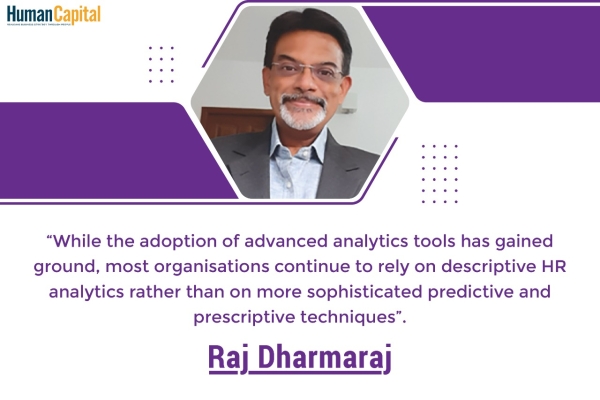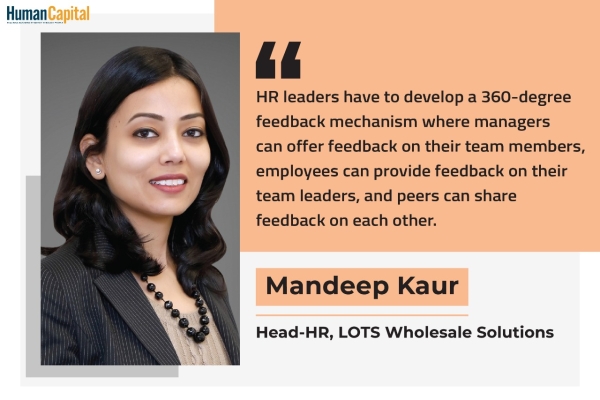Gone are the days when a shiny office, freshly brewed coffee, and a decent paycheck with enough vacation days was good enough to gain a competitive edge in the market for hiring and retaining talent. Changing demographics, fluctuating economic and political situations, easier adoption of technology, have all affected talent and employment in the BFSI Industry.
The increasing comfort in the financial services space between the pace of innovation and incorporation of traits and practices has paved way for reassessing prevailing organisational structures. EY in a report has stated, "There is going to be digitisation of the workforce in a way we have never seen before. In 5-7 years, probably less, we will have substantially fewer employees, and the ones we do have will be significantly different from what we have now."
Top 3 inspiring HR trends for 2019
Unlike 2018, financial services companies in 2019 have now shifted their focus to customer acquisition.
Fuelling this growth is an ever increasing emphasis on digital channels. Significant prioritisation of digital channel engagement is essential for the ability to acquire and retain an increasingly digital consumer base will be more difficult.
The customers reach the business through an ever-expanding landscape of channels and touchpoints, but the financial servicing companies are adapting by deploying advanced analytics that can assess first, second, and third-party data. Financial institutions that leverage the power of big data and analytics will show productivity gains and profitability, significantly higher than those of their peers.
Personalised interaction has gone online, and giving your customer hyper-relevant information is no longer optional. The consumers will turn towards brands who listen and learn from their behaviours, and create genuine relationships with them. There is an increasing emphasis on meeting the needs of the consumer on their terms. The great news is that the tools, data, and intelligence have to come together to meet and exceed these expectations.
Enormous shift in employee experience
The HR community at large is marvelling at the enormous shift in rapidly unfolding employee attitude. A tectonic shift has been seen in the last 2-3 years, and akin to the law of survival, such employers or companies who have adapted to this change have grown.
Intelligent automation: Intelligent automation has been one of the most profound impact on the workforce. And in most simplistic terms, it refers to the combination of Artificial Intelligence and automation that is helping transform conventional platforms and achieve highest levels of quality and efficiency. Rather than skill shortage, a mindset shift from a traditional approach to one that is nimble and responsive to the changing employee expectations is the need of the hour.
With the advent of intelligent automation and new work culture preferences, hiring practices have also undergone a gigantic shift - right from offering the correct value proposition to the salaries offered. In order to attract the highly skilled workforce that can seamlessly adapt to technology, the entire hiring experience has been revolutionised! Organisations are actively accepting digital to embrace the shift in talent by moving away from legacy systems to improve operating efficiency and customer experience. Intelligent automation eventually finds application beyond the HR offices and has been paving way to transcend performance towards consumers, as well. Amidst such a massive shift, HR will need to embrace the newly evolved tenets of this culture. A mandatory crossover from employee engagement to employee experience will play a crucial role to uplift and support the industry's talent.
People Analytics: People Analytics has transformed into a systematic process deeply integrated in statistics, technology, and large sets of talent-led data. It is helping organisations become smarter, more strategic, and well informed about their talent since analytics helps understand every part of business operations and tools that are deeply embedded in day-to-day decision making.
Digitisation is taking place against a backdrop of high demand for talent. With the emergence of the "gig economy" which creates more competition for talent, where traditional workers' career paths are phased out and are now replaced with temporary jobs focused on skill, it is incumbent on organisations to warrant for more flexibility. That said, the 'war for talent' in the financial services space has evolved to encompass new frontiers and unchartered battle grounds. While it poses daunting challenges, it also offers organisations a platform for gaining a competitive edge.
Innovation and New Age Talent
An innovative and tech savvy workforce is seeking agile and adaptive working environments. They are focusing on up scaling their skills and are already beginning to have positive impacts on different vertical functions. Thus, securing and retaining talent has become essential to compete and innovate in such an environment, as the fight for skilled people is not only with the traditional rivals, but also against technology giants and startups. A faster pace of innovation with the incorporation of new technological solutions, has led companies to invest more and more in talent who can drive this strategic transformation.
Organisations need to balance on both strategies that includes attracting and retaining new age talent with an improvised EVP (Employee Value Proposition), and invest in existing talent to bridge the gap. The new-age employee wants to work flexibly and still be on track for promotion. Internal mobility-redeploying staff from one department to another-and the potential for "reskilling," or training employees to do different jobs has also become important, rather than sticking to one kind of role for life.
A leader with a purpose
In the BFSI industry, the past few months have been rampant with stories about changes in the leadership teams, entire teams being uplifted by companies, clients changing brands due to loyalty towards people and not the brand in particular. But at the core of this is the need to change and adapt. What most organisations fail to understand is that the new-age employee finds resonance in a leader that understands his purpose and is willing to offer him the freedom to acknowledge that purpose and provide growth opportunities. Hiring people who want to work in the FinTech space versus hiring talent that can transform businesses at a rapid space are two extremely different skill sets and mandate diverse experiences. In the coming years, those with the ability to work across different functions and business lines will be increasingly valuable, and firms will need to adjust how they view their employees as a result.
We need to be future ready for the change that is coming our way and every employee must be given the tools they need to remain relevant in our ever-changing BFSI landscape. By coupling upskilling with the right mix of hiring, the organisation can future-proof today in order to be ready for the business landscape of tomorrow. As a part of the shift in how institutions value employee skill sets, firms are also placing a greater emphasis on organisational agility and adaptability.
Has COVID-19 forever changed the way we live and work?
Trending
-
SBI General Insurance Launches Digital Health Campaign
-
CredR Rolls Out 'Life Happens' Leave For Its Employees
-
Meesho Announces 30-Week Gender-Neutral Parental Leave Policy
-
Microsoft Unveils Tech Resilience Curriculum To Foster An Inclusive Future
-
60% Indian Professionals Looking For Job Change Due To COVID: Survey
-
SpringPeople And Siemens Collaborate For Digital Transformation Push
-
86% Professionals Believe Hybrid Work Is Essential For Work Life Balance: Report
-
Almost 1 In Every 3 People's Personal Life Affected Due To Work Stress
-
Meesho Rolls Out Reset And Recharge Policy For Employees
-
80% Of Talent Leaders & Academics Say Pandemic Changed Skill Needs For Youth: Report
-
Hero Electric Rolls Out 'Hero Care' Program For Employees
-
Human Capital In Collaboration With ASSOCHAM Hosts Virtual Conference
-
IKEA India, Tata STRIVE Collaborate To Create Employability And Entrepreneurship Opportunities
-
SAP India, Microsoft Launch Tech Skilling Program for Young Women
-
DXC Technology, NASSCOM Collaborate For Employability Skills Program
-
Lenskart To Hire Over 2000 Employees Across India By 2022
-
Mindtree Launches Learn-and-Earn Program
-
Tata AIA Extends 'Raksha Ka Teeka' To Its Employees
-
Swadesh Behera Is The New CPO Of Titan
-
NetConnect Global Plans To Recruit 5000 Tech Professionals In India
-
Hubhopper Plans To Hire 60% Of Indian Podcasters By 2022
-
Corporate India Needs More Women In Leadership Roles: Report
-
Aon to Invest $30 Million and Create 10,000 Apprenticeships by 2030
-
Tech Mahindra Launches ‘Gift a Career’ Initiative for Upskilling of Youth
-
40% Women Prefer Flexible Working Options in Post-COVID World: Survey
-
3 out of 4 companies believe they can effectively hire employees virtually: Report
-
Vodafone , CGI and NASSCOM Foundation launch digital skills platform
-
Odisha: Bank, postal employees to deliver cash for elderly, differently-abled persons
-
Skill India launches AI-based digital platform for "Skilled Workforce"
-
Hiring activity declines 6.73% in first quarter: Survey
-
70% startups impacted by COVID-19 pandemic
-
Bajaj Allianz Life ropes in Santanu Banerjee as CHRO
-
Over 70 Percent MSMEs look at cutting jobs to sustain businesses
-
93 Per Cent employees stressed about returning to office post-lockdown
-
Johnson & Johnson India announces family benefits for same gender partners
-
Indian firms turning friendly towards working mothers
-
Welspun India names Rajendra Mehta as new CHRO
-
Wipro partners with NASSCOM to launch Future Skills platform



Human Capital is niche media organisation for HR and Corporate. Our aim is to create an outstanding user experience for all our clients, readers, employers and employees through inspiring, industry-leading content pieces in the form of case studies, analysis, expert reports, authored articles and blogs. We cover topics such as talent acquisition, learning and development, diversity and inclusion, leadership, compensation, recruitment and many more.
Subscribe Now












































Comment